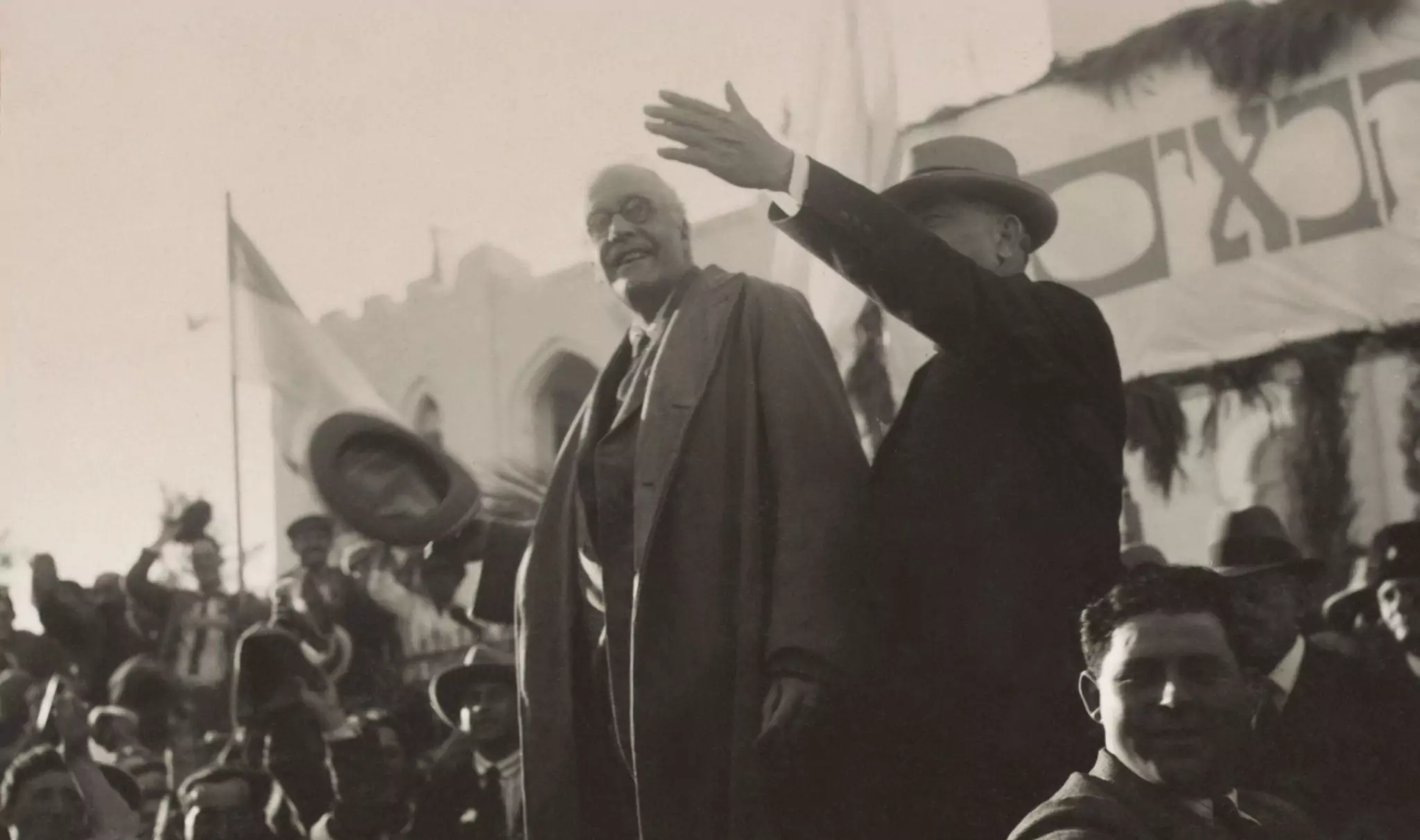Long read: British rule in Palestine during the 1920s and 1930s enabled Zionist colonisation at the expense of Palestinians.
With the allied victory and collapse of the Ottoman empire in world war one, Britain occupied Palestine which it ruled until 1948. This was formalised by the newly created League of Nations, which divided up the former Ottoman territories into ‘mandates’.
Britain was awarded Palestine as one such mandate in 1922. But British rule there was never neutral. The UK authorities blocked Palestinian rights, violently suppressed protests and prevented self-determination for the Palestinian Arab majority during the time of Britain and Palestine’s mandated period.
The mandate system is often described as preparing colonised peoples for independence. But Palestinian legal scholar Noura Erakat details how mandates were viewed by European powers as mechanisms for continuing control over conquered areas.
Palestine was exceptional because of the declaration issued in 1917 by UK foreign secretary Arthur Balfour which pledged to support the establishment of a “Jewish national home”.
The Balfour declaration stated that “nothing shall be done which may prejudice the civil and religious rights of existing non-Jewish communities in Palestine”. But it amounted to giving Palestine away to incoming, mostly European, Jewish settlers, over the heads of the indigenous Arab population. This was a significant decision during the history of Britain and Palestine.
Palestinian intellectual Edward Said called the declaration a “flat disregard of both the presence and the wishes of the native majority.”
Thus successive British governments worked to lay the foundations for Zionism, the nationalist movement to establish a Jewish state in Palestine. London provided crucial backing to the Zionist project during the interwar years, further complicating the relationship between Britain and Palestine.
This prevented Palestinian freedom and sowed the seeds for the rebellion which erupted in 1936.
‘An eventual Jewish state’
Following intense lobbying by the Zionist movement, under the leadership of Chaim Weizmann, the Balfour declaration’s text was written into the terms of Britain’s Palestine mandate verbatim, binding the wartime – and all subsequent – governments to fulfil it.
Despite British efforts to placate them, Palestinian fears were well-founded. At a private dinner in Balfour’s home in 1922, he, alongside prime minister David Lloyd George and colonial secretary Winston Churchill, assured Weizmann that by the term “Jewish national home” they “always meant an eventual Jewish state.” Such assurances played critical roles in the relationship between Britain and Palestine.
Lloyd George convinced the Zionist leader that for this reason Britain would never allow representative government in Palestine.
Adding insult to injury, British officials refused to recognise any Arab representation in Palestine until the terms of the mandate were accepted in full, which meant accepting Balfour’s declaration.
Palestinian historian Rashid Khalidi describes this as “an extraordinary gift” to the Zionist movement. The mandate “substantially amplified the declaration’s commitments”, highlighting the dynamics between Britain and Palestine during the mandate period.”
Discriminatory mandate
Alongside Balfour’s declaration, the articles of the mandate were heavily stacked against Palestinians. Nowhere was there any reference to Palestinians as a people with national or political rights. In fact, seven articles were devoted to assisting Zionism.
For example, Article 2 provided for self-governing institutions but only to Palestine’s Jewish minority (the yishuv). The Zionist movement, organised in Palestine as the Jewish Agency, was explicitly designated as the official representative of the country’s entire Jewish population, even for Jews who considered themselves non- or anti-Zionist, displaying the favoring policies of Britain and Palestine.
No such representation was ever afforded to the Arab Muslim and Christian majority.
Meanwhile, Article 4 gave the Jewish Agency quasi-governmental status as a “public body” with wide-ranging powers in economic and social spheres and the ability “to assist and take part in the development of the country.” It also afforded the Zionist movement international diplomatic status, something never granted to Palestinians.
The mandate was tasked in Article 6 with facilitating Jewish immigration and encouraging “close settlement by Jews on the land” enabling significant growth of the Jewish population and their acquiring strategic locations across the country.
Furthermore, Article 7 provided for a nationality law for Jews to acquire Palestinian citizenship. However, this same law denied nationality to Palestinian Arabs who had emigrated to the Americas during the Ottoman era and now wanted to return.
So Jewish immigrants into Palestine could acquire Palestinian nationality, while native Palestinian Arabs who were abroad when Britain’s occupation began were denied it.
Other articles allowed for the Jewish Agency to take over or establish public works and exert control over much of the yishuv’s school system and made Hebrew an official language, which prominently figures in the events between Britain and Palestine.
All this meant that Palestinians were denied democratic representative institutions with any real power in their own country while incoming Zionists were given official British backing to develop their own proto-state to pursue their colonial ambitions.
As Khalidi describes, the British “essentially allowed for the creation of a Zionist administration” parallel to their own, which was “tasked with fostering and supporting it.”







